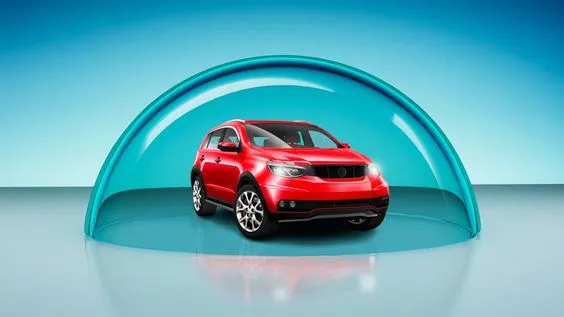When you’re in the market for a new set of wheels, one of the biggest questions you’ll face is how to finance your purchase. Should you go through a bank for a car loan, or are there better options out there? Let’s dive into this topic and explore the pros and cons of bank car loans, as well as some alternatives to consider.

The Bank Car Loan Advantage
Banks have been in the lending game for a long time, and there are some solid reasons why many car buyers turn to them for financing:
- Competitive Interest Rates Banks often offer lower interest rates compared to dealership financing. This is especially true if you have a good credit score and a stable financial history. Lower interest rates mean you’ll pay less over the life of your loan.
- Relationship Benefits If you already have a checking or savings account with a bank, you might qualify for relationship discounts on your car loan. Some banks offer reduced interest rates or waived fees for existing customers.
- Straightforward Process Banks typically have a straightforward application process. You can often apply online, over the phone, or in person at a branch. This gives you flexibility in how you want to handle the loan application.
- Pre-approval Advantage Getting pre-approved for a bank car loan before you shop for a vehicle can be a smart move. It gives you a clear budget and strengthens your negotiating position at the dealership.
- No-Pressure Sales Tactics Unlike some car dealerships, banks don’t have a vested interest in selling you a particular vehicle. This means you’re less likely to face high-pressure sales tactics when discussing loan options.
Potential Drawbacks of Bank Car Loans
While bank loans have their perks, they’re not without potential downsides:
- Stricter Qualification Requirements Banks often have stricter credit requirements than some other lenders. If your credit score isn’t great, you might have a harder time qualifying for a bank loan or getting a competitive rate.
- Longer Processing Times Bank loans can sometimes take longer to process than dealership financing. If you’re in a hurry to get your new car, this could be a drawback.
- Limited Flexibility Some banks may have restrictions on the age or mileage of the car you can finance. This could be an issue if you’re looking at older or high-mileage vehicles.
- Lack of Special Manufacturer Incentives Banks can’t offer the special financing deals that manufacturers sometimes provide through dealerships, such as 0% APR promotions.
Alternatives to Bank Car Loans
While bank loans are a popular choice, they’re not the only option. Here are some alternatives to consider:
- Credit Unions Credit unions often offer lower interest rates than banks and may have more flexible lending criteria. However, you typically need to be a member to apply for a loan.
- Online Lenders Many online lenders offer competitive rates and a quick, easy application process. However, be sure to research the lender thoroughly to ensure they’re reputable.
- Dealership Financing Dealerships can sometimes offer special promotional rates, especially on new cars. However, be wary of high-pressure sales tactics and carefully review all terms.
- Manufacturer Financing Some car manufacturers have their financing arms that may offer special deals, particularly on new cars.
- Personal Loans While not specifically designed for car purchases, personal loans can be used to buy a car and might offer more flexibility in terms of what you can purchase.
Financing Through a Dealership
Pros:
- Convenience: Dealerships allow you to handle both the car purchase and financing paperwork in one visit.
- Access to Deals: Some dealerships offer attractive financing deals, including 0% interest rates for qualified buyers.
- Credit Challenges: Dealerships may work with buyers who have less-than-perfect credit.
Cons:
- Potentially Higher Rates: Dealerships may have higher interest rates compared to direct bank loans.
- Limited Car Selection: Financing through a dealership restricts you to cars available on their lot.
Financing Through a Bank
Pros:
- Lower Interest Rates: Banks and credit unions typically offer more competitive rates since you’re borrowing directly from them.
- Preapproval: Banks allow you to apply for preapproval, making it easier to compare loan offers and reduce pressure at the dealership.
- Lock-in Rates: You can lock in an interest rate for a set time (usually 30 days) with a bank loan.
Making Your Decision
Choosing the right car loan depends on your circumstances. Here are some factors to consider:
- Your Credit Score: If you have good credit, a bank loan might offer the best rates. If your credit needs work, you might have better luck with a credit union or some online lenders.
- Your Banking Relationship: If you have a good relationship with your bank, you might qualify for special discounts or a smoother approval process.
- The Car You Want: If you’re buying a new car, check for special manufacturer financing deals. For used cars, bank loans or credit unions might be your best bet.
- Your Timeline: If you need a car quickly, the faster approval process of online lenders or dealership financing might be appealing.
- Your Comfort Level: Some people prefer the familiarity and trust of a bank they know. Others are comfortable with online-only lenders or are willing to shop around for the best deal regardless of the source.
Advantages of Getting a Car Loan from a Bank
1. Competitive Interest Rates
Banks often offer competitive interest rates, especially to customers with good credit scores. These rates can be lower than what dealerships offer, potentially saving you a significant amount of money over the life of the loan.
2. Stability and Reputation
Banks are well-established institutions with a reputation for stability. Choosing a bank for your car loan can provide peace of mind, knowing that you are dealing with a reliable lender.
3. Fixed Rates
Many banks offer fixed-rate car loans, meaning your interest rate will remain the same throughout the loan term. This can make budgeting easier since your monthly payment will not change.
4. Pre-approval Benefits
Getting pre-approved for a car loan from a bank before shopping can streamline the buying process. It gives you a clear understanding of your budget and strengthens your negotiating position with the dealership.

Disadvantages of Getting a Car Loan from a Bank
1. Stricter Qualification Requirements
Banks typically have stricter qualification criteria compared to other lenders. If your credit score is not high, you might find it challenging to secure a loan from a bank.
2. Less Flexibility
Banks might offer less flexibility regarding loan terms and repayment schedules. They often have set terms and conditions, which might not cater to all borrowers’ needs.
3. Slower Processing Times
The application process for a car loan from a bank can be slower compared to dealership financing. Banks often require more documentation and have lengthier approval times.
Comparison Table: Bank Loans vs. Dealership Financing
| Feature | Bank Loans | Dealership Financing |
|---|---|---|
| Interest Rates | Often lower for good credit | Can be higher |
| Approval Process | Can be slower | Typically faster |
| Qualification Criteria | Stricter | More flexible |
| Pre-approval | Available and beneficial | Rarely offered |
| Loan Terms | Less flexible | More flexible |
| Reputation and Stability | High | Varies |
Case Study: Bank Loan vs. Dealership Financing
Scenario: John has a good credit score and is looking to buy a new car. He decides to explore both bank loans and dealership financing.
Bank Loan:
- John approaches his bank and gets pre-approved for a loan at a 3.5% interest rate.
- The bank requires proof of income, residence, and car details.
- The approval process takes a week.
Dealership Financing:
- At the dealership, John is offered financing at a 5% interest rate.
- The approval process is quick, and John can drive away the same day.
- The dealership requires fewer documents and offers a more flexible repayment schedule.
Outcome: John chooses the bank loan due to the lower interest rate, which saves him money over the loan term. However, he appreciates the convenience and speed of the dealership financing.
Final Tips
- Check Your Credit Score: Knowing your credit score can help you understand what interest rates you might qualify for.
- Compare Offers: Always compare loan offers from multiple lenders, including banks, credit unions, and dealerships.
- Read the Fine Print: Pay attention to all loan terms and conditions, including fees and penalties.
- Consider Pre-approval: Getting pre-approved can simplify the car-buying process and give you a clear budget.
By taking these steps, you can make an informed decision and secure the best car loan for your needs.
Also See: Can You Swap Finance from One Car to Another?
Frequently Asked Questions
Is it easier to get a car loan from a bank or a dealership?
It is generally easier to get a car loan from a dealership as they tend to have more flexible qualification criteria. Banks usually have stricter requirements, especially concerning credit scores.
Can I negotiate the interest rate on a bank car loan?
Yes, you can often negotiate the interest rate on a bank car loan, especially if you have a good credit score or a long-standing relationship with the bank.
What documents do I need to apply for a car loan from a bank?
Typically, you’ll need proof of identity, proof of income, proof of residence, and details about the car you intend to purchase. Some banks might require additional documentation.
Is it beneficial to get pre-approved for a car loan from a bank?
Yes, getting pre-approved can be very beneficial. It helps you understand your budget, strengthens your negotiating position, and can expedite the buying process.
Do banks offer both new and used car loans?
Most banks offer loans for both new and used cars. However, interest rates and terms might vary between the two.
Can I negotiate interest rates with a dealership?
Yes, but remember that dealership rates may be marked up. Consider checking with a bank for better rates.
Are there any advantages to financing through a dealership?
Yes, convenience and access to special deals are the main advantages. However, weigh these against potential higher rates.
Can I use dealership financing for a private-party purchase?
No, dealership loans are typically applicable only to cars on their lot.
Conclusion
Choosing between a bank and dealership financing depends on your priorities. If lower rates and flexibility matter most, explore bank options. For convenience and potential deals, consider dealership financing. Always compare offers to find the best fit for your car-buying journey.
Remember, the right choice depends on your unique situation. Happy car shopping! 🚗💨

Alisha Ray is the founder and chief editor of MoneyCocktail.com, a leading resource for finance, insurance, and share market insights. With a passion for empowering individuals to make informed financial decisions, Alisha combines her extensive knowledge and practical experience to provide clear, actionable advice.

